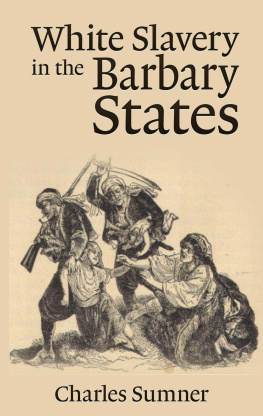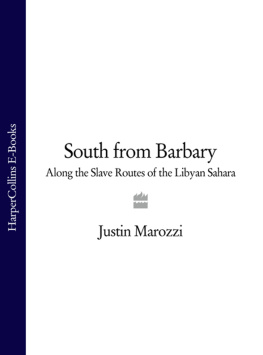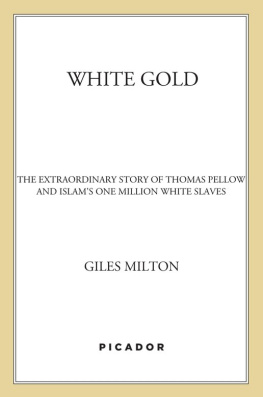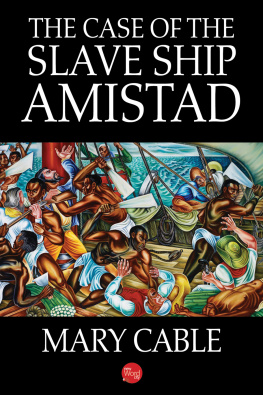Charles Sumner - White Slavery in the Barbary States
Here you can read online Charles Sumner - White Slavery in the Barbary States full text of the book (entire story) in english for free. Download pdf and epub, get meaning, cover and reviews about this ebook. year: 1853, publisher: Enhanced Media, genre: History. Description of the work, (preface) as well as reviews are available. Best literature library LitArk.com created for fans of good reading and offers a wide selection of genres:
Romance novel
Science fiction
Adventure
Detective
Science
History
Home and family
Prose
Art
Politics
Computer
Non-fiction
Religion
Business
Children
Humor
Choose a favorite category and find really read worthwhile books. Enjoy immersion in the world of imagination, feel the emotions of the characters or learn something new for yourself, make an fascinating discovery.
- Book:White Slavery in the Barbary States
- Author:
- Publisher:Enhanced Media
- Genre:
- Year:1853
- Rating:3 / 5
- Favourites:Add to favourites
- Your mark:
- 60
- 1
- 2
- 3
- 4
- 5
White Slavery in the Barbary States: summary, description and annotation
We offer to read an annotation, description, summary or preface (depends on what the author of the book "White Slavery in the Barbary States" wrote himself). If you haven't found the necessary information about the book — write in the comments, we will try to find it.
White Slavery in the Barbary States — read online for free the complete book (whole text) full work
Below is the text of the book, divided by pages. System saving the place of the last page read, allows you to conveniently read the book "White Slavery in the Barbary States" online for free, without having to search again every time where you left off. Put a bookmark, and you can go to the page where you finished reading at any time.
Font size:
Interval:
Bookmark:
White Slavery in the Barbary States by Charles Sumner. First published in 1853. This edition published 2017 by Enhanced Media. All rights reserved.
I SBN: 978-1-365-89565-4
Image: British captain witnessing the miseries of Christian slaves in Algiers, 1815.

I mage: The redemption (buying back) of Christian captives by Mercedarian monks in the Barbary states.

H istory has been sometimes called a gallery, where, in living forms, are preserved the scenes, the incidents, and the characters of the past. It may also be called the world's great charnel house, where are gathered coffins, dead men's bones, and all the uncleanness of the years that have fled. As we walk among its pictures, radiant with the inspiration of virtue and of freedom, we confess a new impulse to beneficent exertion. As we grope amidst the unsightly shapes that have been left without an epitaph, we may at least derive a fresh aversion to all their living representatives.
In this mighty gallery, amidst a heavenly light, are the images of the benefactors of mankindthe poets who have sung the praise of virtue, the historians who have recorded its achievements, and the good men of all time, who, by word or deed, have striven for the welfare of others. Here are depicted those scenes where the divinity of man has been made manifest in trial and danger. Here also are those grand incidents which attended the establishment of the free institutions of the world; the signing of Magna Charta, with its priceless privileges of freedom, by a reluctant monarch; and the signing of the Declaration of Independence, the annunciation of the inalienable rights of man, by the fathers of our republic.
On the other hand, in ignominious confusion, far down in this dark, dreary charnel house is tumbled all that now remains of the tyrants, the persecutors, the selfish men, under whom mankind have groaned. Here also, in festering, loathsome decay, are the monstrous institutions or customs, which the earth, weary of their infamy and injustice, has refused to sustainthe Helotism of Sparta, the Serfdom of Christian Europe, the Ordeal by Battle, and Algerine Slavery.
From this charnel house let me to-night draw forth one of these. It may not be without profit to dwell on the origin, the history, and the character of a custom, which, after being for a long time a byword and a hissing among the nations, has at last been driven from the world. The easy, instinctive, positive reprobation, which it will receive from all, must necessarily direct our judgment of other institutions, yet tolerated in equal defiance of justice and humanity. I propose to consider the subject of White Slavery in Algiers, or perhaps it might be more appropriately called White Slavery in the Barbary States. As Algiers was its chief seat, it seems to have acquired a current name from that place. This I shall not disturb; though I shall speak of White Slavery, or the Slavery of Christians, throughout the Barbary States.
If this subject should fail in interest, it cannot fail in novelty. I am not aware of any previous attempt to combine its scattered materials in a connected essay.
The territory now known as the Barbary States is memorable in history. Classical inscriptions, broken arches, and ancient tombsthe memorials of various agesstill bear instructive witness to the revolutions which it has encountered. Early Greek legend made it the home of terror and of happiness. Here was the retreat of the Gorgon, with snaky tresses, turning all she looked upon into stone; and here also the garden of the Hesperides, with its apples of gold. It was the scene of adventure and mythology. Here Hercules wrestled with Antus, and Atlas sustained, with weary shoulders, the overarching sky. Phoenician fugitives early transported the spirit of commerce to its coasts; and Carthage, which these wanderers here planted, became the mistress of the seas, the explorer of distant regions, the rival and the victim of Rome. The energy and subtlety of Jugurtha here baffled for a while the Roman power, till at last the whole country, from Egypt to the Pillars of Hercules, underwent the process of "annexation" to the cormorant republic of ancient times. A thriving population and fertile soil rendered it an immense granary. It was filled with famous cities, one of which was the refuge and the grave of Cato, fleeing from the usurpations of Caesar. At a later day, Christianity was here preached by some of her most saintly bishops. The torrent of the Vandals, first wasting Italy, next passed over this territory; and the arms of Belisarius here obtained their most signal triumphs. The Saracens, with the Koran and the sword, potent ministers of conversion, next broke from Arabia, as the messengers of a new religion, and, pouring along these shores, diffused the faith and doctrines of Mohammed. Their empire was not confined even by these expansive limits; but, under Musa, entered Spain, and afterwards at Roncesvalles, in "dolorous rout," overthrew the embattled chivalry of the Christian world led by Charlemagne.
The Saracenic power did not long retain its unity or importance; and, as we view this territory, in the dawn of modern history, when the countries of Europe are appearing in their new nationalities, we discern five different communities or states,Morocco, Algiers, Tunis, Tripoli, and Barca,the latter of little moment, and often included in Tripoli, the whole constituting what was then, and is still, called the Barbary States. This name has sometimes been referred to the Berbers, or Berebbers, constituting a part of the inhabitants; but I delight to follow the classic authority of Gibbon, who thinks that the term, first applied by Greek pride to all strangers, and finally reserved for those only who were savage or hostile, has justly settled, as a local denomination, along the northern coast of Africa. The Barbary States, then, bear their past character in their name.
They occupy an important space on the earth's surface; on the north, washed by the Mediterranean Sea, furnishing such opportunities of prompt intercourse with Southern Europe, that Cato was able to exhibit in the Roman Senate figs freshly plucked in the gardens of Carthage; bounded on the east by Egypt, on the west by the Atlantic Ocean, and on the south by the vast, indefinite, sandy, flinty wastes of Sahara, separating them from Soudan or Negroland. In the advantages of position they surpass every other part of Africa,unless we except Egypt,communicating easily with the Christian nations, and thus, as it were, touching the very hem and border of civilization.
Climate adds its attractions to this region, which is removed from the cold of the north and the burning heats of the tropics, while it is enriched with oranges, citrons, olives, figs, pomegranates, and luxuriant flowers. Its position and character invite a singular and suggestive comparison. It is placed between the twenty-ninth and thirty-eighth degrees of north latitude, occupying nearly the same parallels with the Slave States of our Union. It extends over nearly the same number of degrees of longitude with our Slave States, which seem now, alas! to stretch from the Atlantic Ocean to the Rio Grande. It is supposed to embrace about 700,000 square miles, which cannot be far from the space comprehended by what may be called the Barbary States of America. Nor does the comparison end here. Algiers, for a long time the most obnoxious place in the Barbary States of Africa, the chief seat of Christian slavery, and once branded by an indignant chronicler as "the wall of the barbarian world," is situated near the parallel of 36 30' north latitude, being the line of what is termed the Missouri Compromise, marking the "wall" of Christian slavery, in our country, west of the Mississippi.
Font size:
Interval:
Bookmark:
Similar books «White Slavery in the Barbary States»
Look at similar books to White Slavery in the Barbary States. We have selected literature similar in name and meaning in the hope of providing readers with more options to find new, interesting, not yet read works.
Discussion, reviews of the book White Slavery in the Barbary States and just readers' own opinions. Leave your comments, write what you think about the work, its meaning or the main characters. Specify what exactly you liked and what you didn't like, and why you think so.










